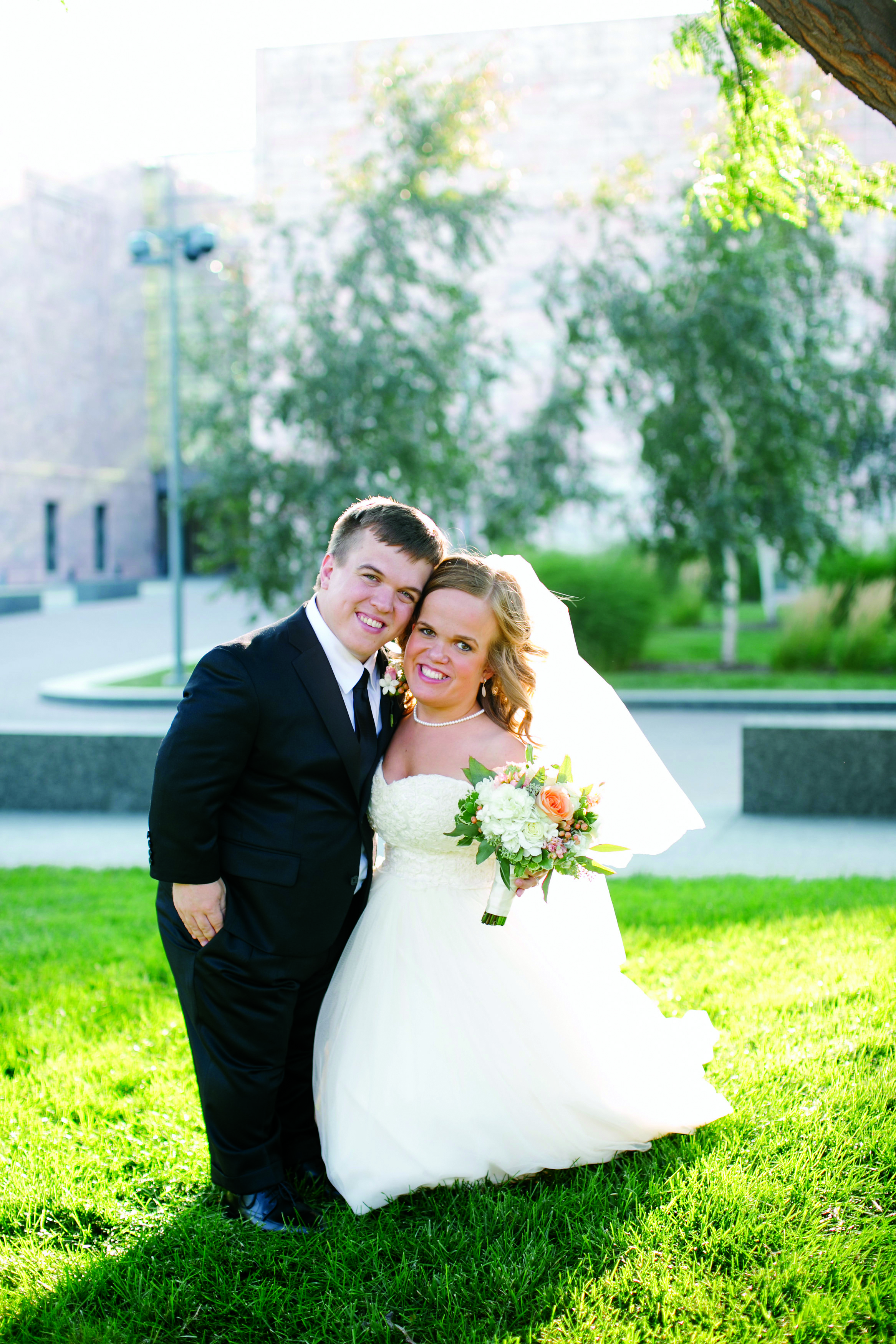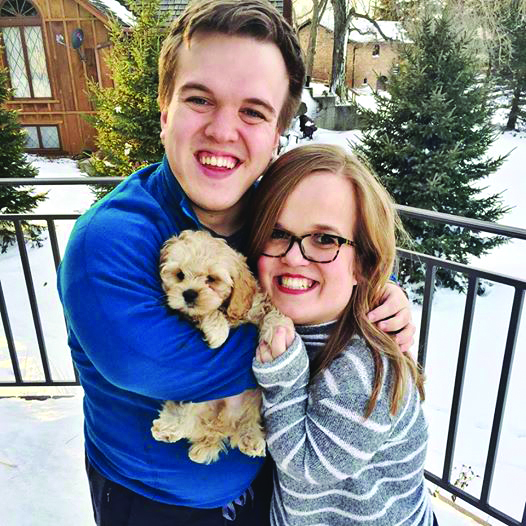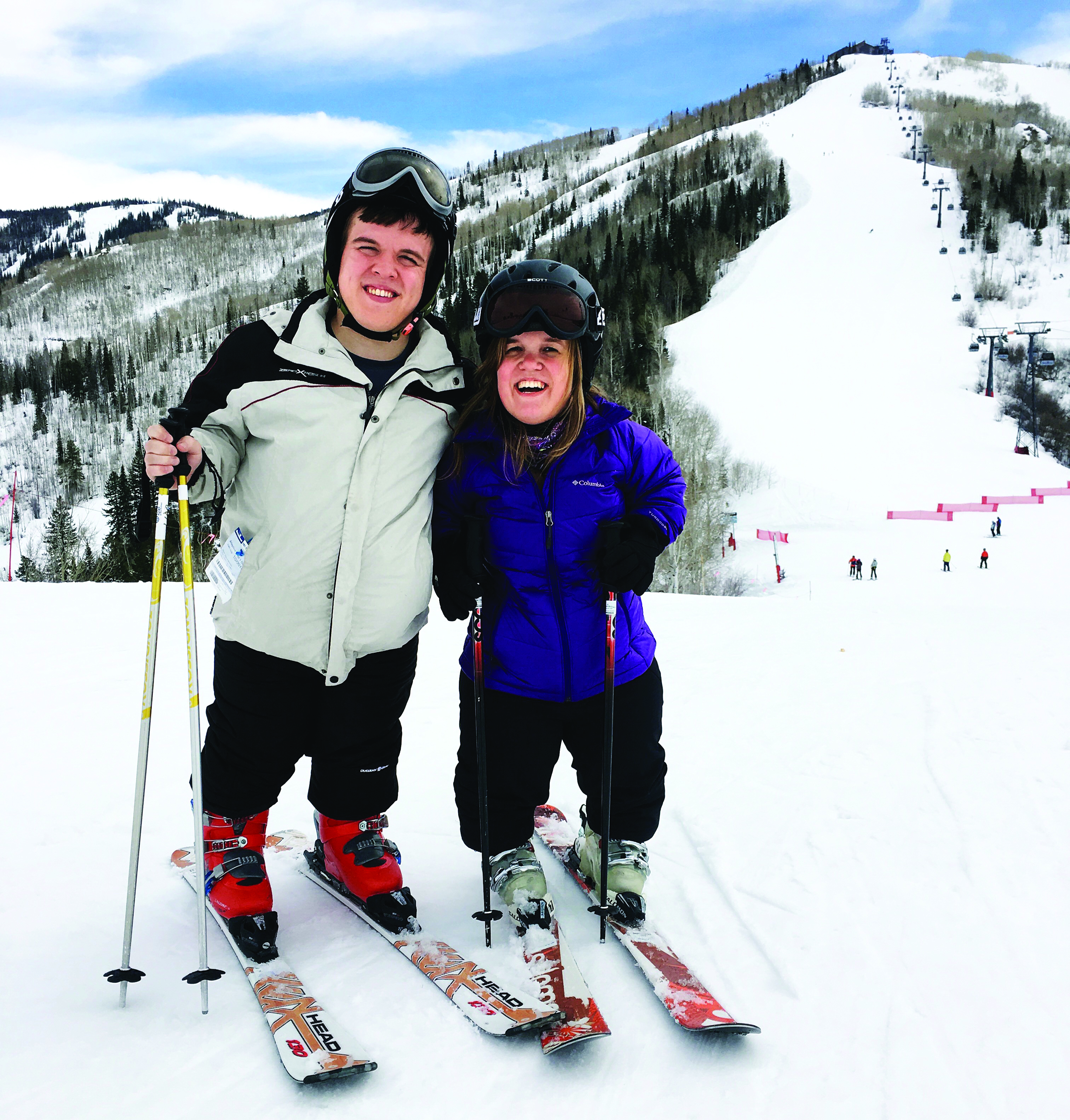 To the mother whose child was curious about my dwarfism
To the mother whose child was curious about my dwarfism
By Kate Braun
I saw you run into Target this morning; I was heading in behind you. You looked busy! I could tell your mind was racing through your list, making sure you had grabbed everything before you rushed off to the next errand with your cute child in tow. We were both in the dairy aisle when your child saw me. He was curious and asked you, “Mom, why is that lady so small?”
You didn’t hear him, so he asked louder, “MOM, why is that lady so small?”
You didn’t hear him again, so he shouted, “MOM! WHY IS THAT LADY SO SMALL?”
I looked over and you were so mortified. My heart broke as you hushed your son, grabbed the milk and pulled him out of the aisle. You left so quickly that I didn’t have the chance to let you know, “It’s okay!” I wanted to tell you that I run into this situation all the time, mostly when I’m out shopping. Kids are innately curious. They are trying to figure out the world around them and they want to know why things are the way they are. Your child is not the first, and I am not embarrassed by your child’s question!
This situation has happened more times than I can count, and I am always amazed that kids ask the same questions each time. Why is that lady so small? Is she a mommy? Why does that mommy have a big head? Can that mommy drive?
I know you are busy and don’t always have the time to explain everything to your child as soon as they ask it. You probably didn’t think this trip to the store would involve a teaching moment about explaining differences; you were just hoping to remember everything on your list. I get it! However, if you don’t mind, on your drive home or before bed tonight, could you explain my difference to your child?
Children need to learn that being different is okay.
They are going to run into so many people in their life who are different from, them and in my experience (though I am not a mother), it is key to answer kids’ questions when they come up, and to model appropriate behaviour. Children look to you as a model to understand differences and to see how to act in various situations. Differences shouldn’t be ignored but celebrated, because we are all a little different from each other in some way or another!
Now I can’t speak for everyone who has dwarfism or a disability, but in my experience, when I have had the opportunity to explain difference to kids I have found a few similarities in their curiosity:
- Kids are not as interested in labels or terms as they are in finding out what I can and can’t do. They don’t care as much about the fact that I have dwarfism or achondroplasia as about whether I drive, or how I live in a house by myself, or if I am a mommy.
- It’s important to reinforce the fact that the disability or difference they see is only one characteristic of the person. I have likes and dislikes, and live life just like any other adult.
- It’s important to explain that people with disabilities can do many of the same things as anyone else, but it might take them longer, and they might do them in a different way or use assistance.
- I love it when parents encourage kids to ask me questions! Not every person may be comfortable having a child ask them questions, but I appreciate the chance. I’ve had many parents come up to me and say, “Excuse me, my child has some questions for you about your disability. Do you have time?” I think it is polite, and being asked always gives me the opportunity to decline if I don’t have the time.
- Finally, kids don’t always understand that staring is rude—it’s just the way they work out their curiosity. Teach them that it’s okay to ask questions but guide them in how to ask.
Kate Braun is the author of kateandbraun.com. She’s out to love others passionately and educate them gracefully about living with dwarfism.
Reprinted with permission from the author.
Save














